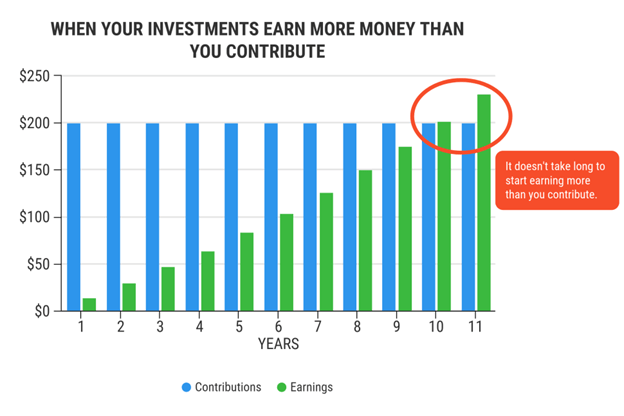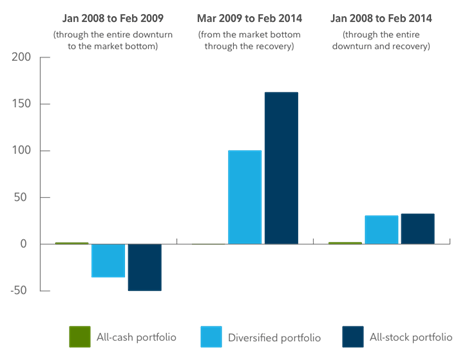What Is the Advantage of Investing Early For Retirement?
Investing early for retirement is a smart financial strategy that can bring numerous benefits to individuals looking to secure their financial future, including the ability to enjoy traveling after retirement. The amount of money that will be available to you in retirement will depend considerably on how early you begin investing and how much you are able to save towards retirement each month. Beginning to invest in your retirement account as early as your 20’s or 30’s will have a big impact on when you can retire and the lifestyle you will be able to maintain in retirement.
Read more: Advantage Of Investing Early For Retirement
Benefits of Investing Early
Benefit from Compound Interest
Compound interest is a powerful tool that can help your investments grow exponentially over time. By investing early, you give your money more time to grow and take advantage of the power of compound interest. This can lead to a significant increase in your retirement savings over the long term. For example, if you were to invest $1,000 in an account that grows five percent each year, at the end of the year, you will have $1,050. The next year, you will see a 5% return on $1,050, which then gives you $1102.50, and so on and so on.

Tax Benefits
When saving for a long-term goal like retirement, you can give a big boost to your savings by taking advantage of available tax-deferred investments. A tax-deferred account, such as a Roth IRA or a 401(k) plan, will allow you to realize immediate tax deductions on the full amount of your contribution but remember that future withdrawals from the account will still be taxed at your ordinary income rate.
Diversified Portfolio
Diversifying your investments is an important strategy for managing risk and maximizing returns. An advantage of investing early for retirement is that you have more time to build a diversified portfolio that can help you reach your retirement goals. This also means that you will give yourself time to participate in higher risk, higher reward investments. Starting to invest in your retirement early can help give you a larger financial safety net when you retire and can increase the chances of your investments withstanding market fluctuations.
Diversification helped limit losses and capture gains through the financial crisis and recovery.

Flexibility
The earlier you start saving for your retirement, the less you will need to put aside each month. If you can start your your retirement savings plan in your 20’s, with a smaller savings of say $200/month it can end up making a big difference. This gives you the flexibility to save smaller amounts each month, where if you start later in life, you will need to contribute more to your retirement account each month, in order to reach the same retirement goals.
Inflation
With prices of many goods continuing to rise at a record rate, many people planning for retirement have expressed concern about what type of retirement income they will be able to afford. While most retirees will spend less on items like food, clothing and transportation, these items are also significant drivers of inflation and may still affect you in retirement. When you begin investing early for your retirement, you set yourself up to be able to weather inflation and still have the retirement you dreamed of.
Longer Life Expectancies
On average Americans are living longer than ever before and with that increase in life expectancy, you will need more money to last through your retirement years. There is also the rising cost of healthcare, which as you grow older, will likely increase as well.
How a Retirement Plan Works
What is a qualified retirement plan? A retirement plan is a financial arrangement that helps individuals save money for their retirement years. Typically, these plans are offered by employers as a benefit to their employees, although individuals can also set up their own retirement plans. There are several types of retirement plans, including 401(k) plans, 403(b) plans, and traditional and Roth Individual Retirement Accounts (IRAs). Contributions made to these plans are typically tax-deductible, and the money invested in the plan grows tax-free until it is withdrawn. When individuals reach retirement age, they can begin withdrawing money from their retirement plan to support themselves in their retirement years. The amount of money an individual receives from their retirement plan will depend on a number of factors, including how much they contributed to the plan over their working years and the performance of the investments in the plan.
Where to Start Planning
No matter where you are in life, starting to think about retirement planning is a good idea. It’s important to consider not only your financial goals but also the many different things to do during retirement. From investment management to financial planning, our team work to help make sure you reach your retirement savings goal and set yourself up to retire with the lifestyle you want.
Whether you are looking to work with a certified Bay Area financial advisor or are looking for wealth management in Houston, Texas and the surrounding areas, we can help. We offer comprehensive, holistic planning that takes all aspects of your life into account.
Reviewed by,

Chad Seegers, CRPC®
Chad began his career with Sagemark Consulting in 2005 and then became a Select member of Sagemark’s Private Wealth Services which operated as a national resource for financial planners focusing on Advanced Strategies in the High Net Worth marketplace. Chad then began his partnership with Insight Wealth Strategies in 2013 focused on retirement planning primarily with Oil and Gas employees and executives. His primary areas of expertise are retirement, estate, and investment strategies as he serves as Investment Strategist for the financial planning team.
Insight Wealth Strategies, LLC is a Registered Investment Adviser. Advisory services are only offered to clients or prospective clients where Insight Wealth Strategies, LLC and its representatives are properly licensed or exempt from licensure. Past performance is no guarantee of future returns. Investing involves risk and possible loss of principal capital. No advice may be rendered by Insight Wealth Strategies, LLC unless a client service agreement is in place.
Insight Wealth Strategies, LLC (IWS) and its affiliates do not provide tax, legal or accounting advice. This material has been prepared for informational purposes only, and is not intended to provide, and should not be relied on for, tax, legal or accounting advice. You should consult your own tax, legal and accounting advisors before engaging in any transaction.

